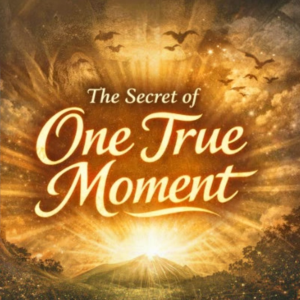Breslov Repair Kit — Sophistication
One of the biggest obstacles in the search for truth is other people, especially those who make fun of religion with “sophisticated” jokes… –Advice, Rebbe Nachman’s Wisdom 81, BRI
Sophistication can be very harmful. Thinkers are easily trapped in their own wisdom. Keep well away from the wisdom of those self-important people who believe they know great truths about serving God. Their wisdom is nothing but foolishness. All their sophistication is quite unnecessary in serving God.
The main thing is to be pure and simple and to have faith in God and His Tzaddikim. True, you have to be careful that you are being pure and simple as opposed to idiotic. But sophistication is entirely unnecessary. Simplicity, purity, and faith can bring you to great joy. –Advice, Likutey Moharan II, 5:15, BRI
Do you think of yourself as sophisticated? Then you must be enlightened, broad-minded, wise, erudite, charming, cultured, educated, civilized—right?
But Rebbe Nachman warns about the true meaning (and the Latin root) of sophistication: sophistry. Sophistication is charming, but slick and tricky; it employs superficially plausible but dishonest methods of reasoning. Sophisticated thinking relies on human stratagems, and doesn’t hesitate to commit fraud. A sophisticate twists himself into intellectual pretzels in order to justify his non-Torah convictions, even using Torah to do so.
When I first began to be Torah observant, I tried to make Torah fit in with my pre-existing beliefs including political ideologies. After all, I had been involved in activism. To my surprise, as I immersed myself In Torah, my beliefs underwent a radical shift. I felt as if my psyche was shrugging off an overcoat that was too skimpy, a bit threadbare. Even dirty. I was now free to be my true self—so naturally I began to drop the socially acceptable cant from my vocabulary. I also began to see my radically secular upbringing for what it was: brainwashing.
(Maybe like me you, too were a typical American child of isms. *Isms are ideologies and philosophies, the kind that Torah says will eventually lead us to question the very existence of God, chas v’Shalom.)
As soon as I “discovered” Torah Judaism, I realized I had been profoundly betrayed by my isms; they had been nothing but smokescreens which had all along prevented me from exploring foundational, unresolved psycho-spiritual issues. They obscured true meaning. Eventually I quit my isms (or they quit me). But, with all the passion of a woman wronged, I began to don an equally sophisticated—that is, concealing—cloak of alternate isms that still weren’t Torah. Sure, I could find justifications in Torah for my new collection of causes, but still, they were isms.
At some point I decided it was time for an old-new approach: Since Torah is truth, I would do my best to rely only on it to inform my worldly dealings. Everything had to be put to the test—I would cling no longer to my rigid assumptions of what was right. I questioned whether my isms muddied truth with falsehood (and found they even concealed anti-Torah beliefs.)
If you are finding this topic relevant, it’s likely because you are the kind of Jew who wants to help others and do good. You are someone who wants the world to be a better place. You’re the kind of person who is always looking for ways in which you can help make that happen. But still your isms, like mine, must pass the Torah test.
The problem with isms which makes each and every one suspect, even the ones that “feel right,” is that by aligning with them, we become sophisticates. But when looked at close-up, even the most seemingly noble man-made ism stands in direct or partial contradiction to God’s laws, or at the very least, distorts them. The mother of all isms, determinism, is what each ism longs to become.
Torah is, among many other lofty things, a system of healthy boundaries. Isms almost always subvert or dissolve these boundaries (sometimes, quite subtly). For example, Torah tells us—explicitly, clearly, and repeatedly—what morality, justice, and righteousness consist of. But so do isms. Because we’re only human, we’ll recognize only the connections to Torah and gloss over the discrepancies.
Once you take on a non-Torah ism, no matter how benevolent it seems, it’s only a matter of time before you find yourself considering doing things a Jew shouldn’t be doing (dissing other Jews is the one that seems to come up most often). By participating in or building non-Torah movements, even if “mixed” with Torah, you will find it challenging if not impossible to distinguish between what is kosher and what’s not. You might end up relying on the chochma (wisdom) of humans, perhaps even humans who are unfamiliar with Torah, rather than Torah. You might choose your ism over a fellow Jew or community different than your own.
Another problem is that the pressure from other ism-loving people can be intense. You end up having to align with people who probably don’t put Torah first (assuming they even know what it is). After all, ism-pushers are usually charismatic and they appear most sagacious and compassionate. But don’t forget: that’s because they’re sophisticated!
It’s not always easy to keep in mind the Rebbe’s words: “One of the biggest obstacles in the search for truth is other people…” but if you want to be true to Torah and true to yourself, you must check in with Torah and yourself, not others. Hisbodedus is the best way to shake off the layers and ask yourself: Am I rationalizing my attachment to my isms? Do I feel special, privileged, and superior because I align with an ism or do I know I’m special because I am loved by Hashem?
Some sophisticates might justify their belief in an ism by taking quotes from Torah and applying them in self-serving/self-deceiving ways. Perhaps they aggrandize themselves, even at the expense of their fellow Jews or feel it’s diplomatic to be politically correct. Adherence to a non-Torah ism is often bound to the yetzer hara (evil inclination) of gaava, or arrogance. This yetzer is super-smart, popular, and insidious. It cloaks itself in feel-good terminology and brilliant wit, and usually wins kudos from an adoring public. It tells us that we know better than the simple Jews. It blinds us.
We’re told that the Rebbe would serve God with the utmost simplicity, eschewing sophistication at every turn. “It was not that he was incapable of sophistication. Nothing could be further from the truth. For he was an outstanding genius, capable of great depth, even as a child, as all who knew him could attest. But still, he made no use of his brilliance when it came to serving God. His devotion would be as simple as possible.” – Rabbi Nachman’s Wisdom, 13, (BRI)
But what about the wisdom in those isms? The Rebbe is perfectly clear: “ …The Holy Torah is the only true wisdom. All other ideas are nothing in comparison.” – Advice, BRI.
See The Sophisticate and The Simpleton, Rabbi Nachman’s Stories, BRI.
*A small sample of isms: Socialism, Capitalism, Liberalism, Conservatism, Environmentalism, Vegetarianism, Statism, Social Justice, and so on. In all honesty, there are aspects of Torah truths in most of today’s non-Torah isms—but if you pretend the non-truths aren’t problematical, than you’re immersed in sophistry sophistication.
- 5 comments























5 Responses
I think readers will remember C.R. Zwolinski’s article about Sophistication because it’s written so sincerely and as the saying goes, devarim hayotzim min halev nichnasim lalev. Thank you for posting these thoughts about Torah, truth and wisdom.
I spent many years struggling with what is the “truth,” after learning in a baal t’chuvah yeshiva for almost a year.
While I completely understand a person having a simple love of Judaism (another –ism?) and living a Torah life – I am baffled by people who think the tradition of receiving Torah from Mt. Sinai is definitely, without a doubt, factually correct.
I can take Judaism right up the edge – it is a culture, it is a deep lifestyle, it is a commitment. But when someone says they know that Torah came from Mt. Sinai as depicted in the Torah – it seems to me to take away from the powerful core of Judaism’s attraction: the truth is we don’t know. But this makes Torah deeper, not more shallow.
Our religion (to me) is based on the broken truth, not the pretty lie. On the real feeling that the past is not known and not knowable in regards to the Torah’s origins, not the false comfort of certainty about the past.
It’s the truth I find in Judaism – the arguing, the diversity, the depth of life in all its beauty and all its ugliness. The contradictions and illogic too. And yet, when we get to Torah – there is only one reflexive answer: it happened as recounted, we know it.
Maybe you have some response to this?
(Also, it’s not just Torah for me: I’ve had friends who deeply believe in all kinds of things that are debatable: Big Foot, the conspiracy to kill JFK, UFOs, other religions, New Age stuff, the possibility of an Afterlife. I think these are all interesting questions and ideas – but part of the truth when we discuss such things is we have to acknowledge it might not be real. And when friends were quite certain that say, Big Foot was real – I just would shrug my shoulders and say, “it very well could be. But that’s about the best we can say.”)
Charlie
Shalom Charlie,
Sorry for the delay, I just noticed your comment. You questions are obviously sincere and from a deep place. I am not sure I am able to answer you, I suggest you read Rebbe Nachman’s Stories which contain powerful psycho-spiritual medicine. Also, a wonderful book that perhaps will answer some of your question is Crossing the Narrow Bridge (I believe it is available in the Breslov.org store and Amazon.com).
Rebbe Nachman spoke about the importance of emunah, faith and indeed, one of the precepts of Judaism is faith-without it, there is no Judaism. There is perhaps Jewish-tinged thought and action, but these are built on a house of cards.
In today’s world there is so much information that it can be challenging to believe there is eternal truth, that Hashem created the world and that He has shared with us, in Torah, keys which can help us access human-sized bytes of truth. Jung acknowledged that life is filled with synchronicities, meaningful coincidences which just occur, because…there is no underlying Source for these occurences.
Belief, faith, trust in Hashem–all these are being constantly challenged by yesterday’s and today’s psychology, zen-type faiths, false prophet faiths, and especially Hellenism. Hellenism can be briefly defined as the belief in the predominance of humankind and its achievements as well as the belief there is nothing besides this temporal world. On the one hand you have false prophets, spirits (both differentiated and all-consuming) and big foot; on the other you have worship of the human mind and body, science, ethics. Neither offers truth to the seeker.
It is interesting to note that science, that supposed fortress of “fact” changes its collective mind constantly. I’ll start with a science somewhat familiar to all of us: health and nutrition. One year we are told that butter is unhealthy, the next we’re told margarine is worse. One year we’re told to eat low-fat, the next, fats are essential to the functioning of the body. One year we’re told to limit calories, the next carbohydates, the next, transfats.
In the 1950s we were told autism was caused by “refrigerator mothers”, then we were told it has no known cause, sometimes we’re told it is caused by vaccines; now the cutting edge, Harvard research says that a factor of gut-brain inflammation due to food intolerance and environmental pollutants is present in all cases of autism.
Torah offers us the underlying truth: Our physical reality is a reflection of our spiritual state.
The only truth that doesn’t change is Torah but only by studying and learning and immersing oneself in Torah can one see that this is indeed, the case.
When we read the Torah, especially with commentaries, we see how the text is as relevant as ever.
For example, in this week’s parsha, Re’ey, we are taught about false prophets and how we are to have no compassion on them–the damage they can do is tremendous. They sound so reasonable, it’s so easy to believe them! They say, ignore the Torah laws, they don’t make sense. They say, take it easy, relax, do what feels good. Listen to me instead of Torah, they say, or listen to your own logic.
I find it interesting that right after the verses on false prophets, we are taught to not “gash” or “mutilate” ourselves in mourning, as the other nations do. Why are these verses juxtaposed? Perhaps because, for the other nations, there is only this one, fleeting, material world (as Rashi points out) so when someone leaves this world, their mourning is all-consuming and they gash themselves in dispair. They don’t believe the soul lives on. They believe loss is permanent.
The sub-message? Don’t follow false prophets or all you’ll end up with is this world!
Also of interest, we read, right after this, the laws of kashrus. In these laws, four animals are named which have one sign of kashrus, but not both necessary signs (cloven hooves and chewing the cud). It’s interesting to note that since the time the Torah was given, no one has been able to find any other animals which exhibit only one of the two kosher signs. They either have none, or both.
But, on a deeper level, we are taught that these four animals show us how each of the four exiles which exhibit the traits of the thinking of the nations, can either cause us to grow spiritually or stall spiritually. http://www.jemsem.org/index.php?option=com_content&view=article&id=347&Itemid=54
About Har Sinai: If we assume that the entire generation, the millions of men, women and children who received the Torah from Moshe at Har Sinai were colluding together in some kind meshugah conspiracy, what about the next generation? Why didn’t someone in that generation say, “You know, the previous generation were scoundrels who got together, and made up the whole Sinai-thing.” Why didn’t someone blow the whole case wide open? We are a stiff-necked people. You can’t even get two Jews to agree on which shul to go to let alone create a falsehood of this magnitude. Har Sinai must be true, an entire generation witnessed it.
Charlie, I am not sure I can answer your questions. I just know that studying Torah and the teachings of Rebbe Nachman of Breslov, will. But it takes time.
I had always thought the use of “G-d” was a common Jewish convention in order to sidestep destruction of The Name. Breslov.org doesn’t use that convention.
Are there any articles here explaining the different points of view on this question? I’d be interested in the Breslover perspective.
Hi Joe,
What an interesting question–I’m sure you aren’t the only person who has this question, thank you for asking. My answer is an overview only, as the numerous details are beyond the scope of this space, please check with your rabbi for advice for any personal situation with this that you encounter.
It is a Jewish law that we mustn’t damage or destroy the names of Hashem (called Shemot or Shaimos) written in Hebrew or English (such as the Ado…name) or any object that has sanctity. Any paper or book or other item that has written/engraved on it the name of Hashem, an old menorah, etc., must be buried. There are numerous organizations that offer this, usually for a small fee.
Many people are particular to not damage or destroy the word Hashem or God written even in English. Many are careful to wrap up newspapers, printouts, etc. that contain the word “God” or “Hashem” in a plastic bag or other wrapper before disposing of them in a trash can. This is why disposable printed matter, such as some magazines, newspapers, fundraising letters, personal letters, etc. don’t spell out the word “God” or “Hashem” and instead make use of abbreviations, dashes, etc.
Then we come to technology. There are differences of opinion about whether or not typing on the computer without printing out hard copies, requires the use of abbreviations or dashes common in “disposable” printed matter. (And whether or not typing constitutes writing, but that is another matter.) Some halachic authorities say that using conventional ways to minimize potential Shaimos is a good idea, some say it is not necessary because we can’t (and therefore don’t have the requirement to) bury a word document, web page, etc.
Because there are Asheknaz, Sefardic, Mizrahi, Litvak, Chassidish communities within Breslov, different Breslovers likely interpret the above depending on their Rav, community practices, and/or understanding, although all according to halacha. I personally tend to use the fully typed out names for the sake of clarity for the reader.
With joy,
Chaya Rivka Zwolinski